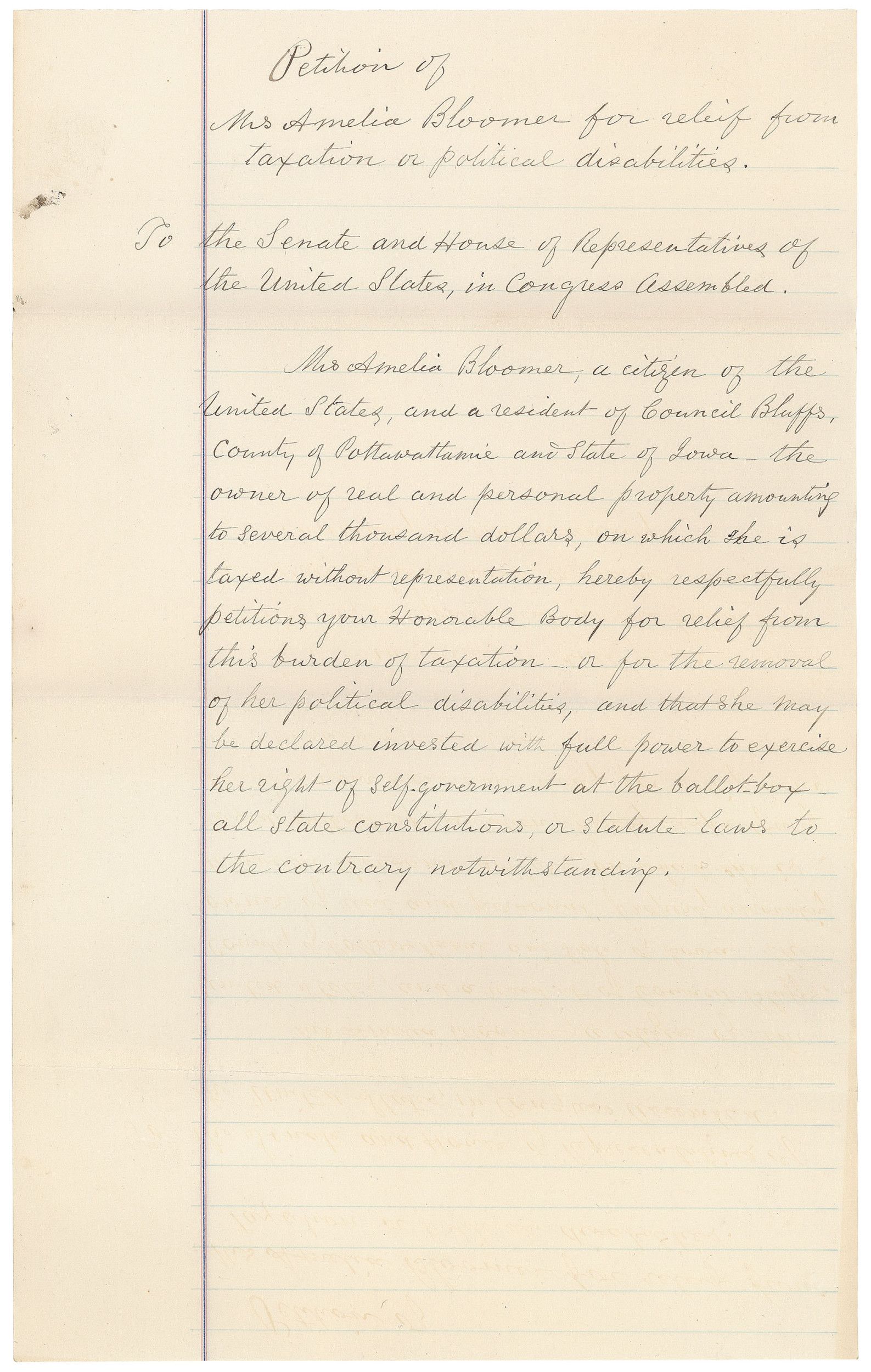Petition of Mrs. Amelia Bloomer for Relief from Taxation or Political Disabilities
1878

In this petition to Congress, Amelia Bloomer requests that Congress grant her either relief from taxation or from her political disabilities. This petition was submitted to Congress as part of a petition drive organized by the National Woman Suffrage Association (NWSA) calling for a constitutional amendment guaranteeing women’s right to vote. The petition closely follows a template provided by NWSA (for example, the Petition of Clemence Lozier).
NWSA encouraged women to personalize their messages to Congress by including their own reasons for desiring the vote. In her petition, Bloomer asserts that she endures taxation without representation: she pays taxes on property she owns and but cannot vote for her representative in Congress.
Bloomer was a temperance and women's rights advocate who also published The Lily, the first newspaper for women. She is also remembered as an advocate for changing the way women dressed, popularizing an outfit consisting of pantalones worn under a shorter dress, later called bloomers. At the time of this petition drive, she was a vice president of the NWSA. Amelia Bloomer’s petition was introduced in House of Representatives and referred to to the Committee on the Judiciary on January 15, 1878.
On January 10, 1878 Senator Aaron Sargent first introduced the joint resolution for an amendment to the Constitution that would ultimately extend the right to vote to women as the 19th Amendment, 42 years later. Petitions like Amelia Bloomer’s show how women acted to bring about change through their decades-long fight for the right to vote.Transcript
Petition of Mrs. Amelia Bloomer for relief from taxation or political disabilities.To the Senate and House of Representatives of the United States, in Congress Assembled.
Mrs. Amelia Bloomer, a citizen of the United States, and a resident of Council Bluffs, County of Pottawattamie and State of Iowa _ the owner of real and personal property amounting to several thousand dollars, on which she is taxed without representation, hereby respectfully petitions your Honorable Body for relief from this burden of taxation _ or for the removal of her political disabilities, and that she may be declared invested with full power to exercise her right of self-government at the ballot box all state constitutions, or statute laws to the contrary notwithstanding.
Activities that use this document
- Mrs. Bloomer's 'Political Disability'
Created by the National Archives Education Team - Why Did Women Want the Right to Vote?
Created by the National Archives Education Team
Rights: Public Domain, Free of Known Copyright Restrictions. Learn more on our privacy and legal page.



